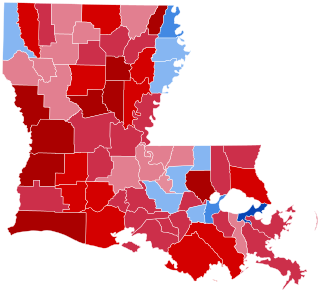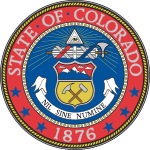
Super Tuesday is the United States presidential primary election day in February or March when the greatest number of U.S. states hold primary elections and caucuses. Approximately one-third of all delegates to the presidential nominating conventions can be won on Super Tuesday, more than on any other day. The results on Super Tuesday are therefore a strong indicator of the likely eventual nominee of each political party.

This article contains opinion polling by U.S. state for the 2016 Republican Party presidential primaries. The shading for each poll indicates the candidate(s) which are within one margin of error of the poll's leader.

Presidential primaries and caucuses of the Republican Party took place within all 50 U.S. states, the District of Columbia, and five U.S. territories between February 1 and June 7, 2016. These elections selected the 2,472 delegates that were sent to the Republican National Convention. Businessman and reality television star Donald Trump won the Republican nomination for president of the United States.
The following is a timeline of major events leading up to, during, and after the 2016 United States presidential election. The election was the 58th quadrennial United States presidential election, held on November 8, 2016. The presidential primaries and caucuses were held between February 1 and June 14, 2016, staggered among the 50 states, Washington, D.C., and U.S. territories. The U.S. Congress certified the electoral result on January 6, 2017, and the new President and Vice President were inaugurated on January 20, 2017.
The 2016 presidential campaign of Ted Cruz, the junior United States senator from Texas, was announced on March 23, 2015. He was a candidate for the Republican Party's 2016 presidential nomination and won the second-most state contests and delegates. Cruz themed his campaign around being an outsider and a strict conservative. In the crowded early field, he chose not to directly confront the leading candidate, Donald Trump, who was also viewed as an outsider candidate. His cordial and sympathetic tone towards Trump contrasted with the more critical approach of rivals such as Jeb Bush, Marco Rubio, and Rand Paul. Had Cruz been elected, he would have been the first Cuban American U.S. president.

The 2016 presidential campaign of John Kasich, the 69th governor of Ohio, was announced on July 21, 2015. He was a candidate for the 2016 Republican Party presidential nomination. He earned 154 delegates and won only one contest, his home state, Ohio. Kasich suspended his campaign on May 4, 2016, one day after becoming the last major challenger to Donald Trump for the nomination. Kasich vied to become the first Pennsylvania native to hold the office since James Buchanan in 1856, as well as the first from the city of Pittsburgh to do so.

This article contains the results of the 2016 Republican presidential primaries and caucuses, the processes by which the Republican Party selected delegates to attend the 2016 Republican National Convention from July 18–21. The series of primaries, caucuses, and state conventions culminated in the national convention, where the delegates cast their votes to formally select a candidate. A simple majority (1,237) of the total delegate votes (2,472) was required to become the party's nominee and was achieved by the nominee, businessman Donald Trump of New York.

The 2016 United States presidential election in Colorado was held on Tuesday, November 8, 2016, as part of the 2016 United States presidential election in which all 50 states plus the District of Columbia participated. Colorado voters chose electors to represent them in the Electoral College via a popular vote, pitting the Republican Party's nominee, businessman Donald Trump, and running mate Indiana Governor Mike Pence against Democratic Party nominee, former Secretary of State Hillary Clinton, and her running mate Virginia Senator Tim Kaine. Colorado has nine electoral votes in the Electoral College.

The 2016 United States presidential election in Louisiana was held on Tuesday, November 8, 2016, as part of the 2016 United States presidential election in which all 50 states plus the District of Columbia participated. Louisiana voters chose electors to represent them in the Electoral College via a popular vote, pitting the Republican Party's nominee, businessman Donald Trump, and running mate Indiana Governor Mike Pence against Democratic Party nominee, former Secretary of State Hillary Clinton, and her running mate Virginia Senator Tim Kaine. Louisiana has eight electoral votes in the Electoral College.

The 2016 Iowa Republican presidential caucuses took place on February 1 in the U.S. state of Iowa, traditionally marking the Republican Party's first nominating contest in their series of presidential primaries ahead of the 2016 presidential election.

The 2016 United States presidential election in Nebraska was held on Tuesday, November 8, 2016, as part of the 2016 United States presidential election in which all 50 states plus the District of Columbia participated. Nebraska voters chose electors to represent them in the Electoral College via a popular vote, pitting the Republican Party's nominee, businessman Donald Trump, and running mate Indiana Governor Mike Pence against Democratic Party nominee, former Secretary of State Hillary Clinton, and her running mate Virginia Senator Tim Kaine. Nebraska has five electoral votes in the Electoral College, two from the state at large, and one each from the three congressional districts.
Although Puerto Rico did not participate in the November 8, 2016, general election because it is a territory and not a state, the five non-incorporated territories that send delegates to the United States House of Representatives participated in the presidential primaries.

On March 3, 2016, U.S. Republican politician Mitt Romney delivered a major speech for the Hinckley Institute of Politics at the Libby Gardner Hall in the University of Utah. In that speech, he denounced Donald Trump, who was then the front-runner in the 2016 Republican Party presidential primaries. He urged citizens to use tactical voting in the remaining primaries and caucuses to maximize the chance of denying Trump a delegate majority.

The 2016 Nevada Republican presidential caucuses took place on February 23 in the U.S. state of Nevada, marking the Republican Party's fourth nominating contest in their series of presidential primaries ahead of the 2016 presidential election.
The 2016 U.S. Virgin Islands Republican presidential caucuses took place on March 10 in the U.S. territory of the United States Virgin Islands as one of the Republican Party's primaries ahead of the 2016 presidential election.

The 2016 Wisconsin Republican presidential primary was held on April 5 in the U.S. state of Wisconsin as one of the Republican Party's primaries ahead of the 2016 presidential election. Texas senator Ted Cruz won the contest with 48%, ahead of nationwide frontrunner Donald Trump by 13 percentage points. Taking advantage of the state's two-level "winner takes all" provision, Cruz took 36 out of the 42 available delegates.

The 2016 New York Republican presidential primary was held on April 19 in the U.S. state of New York as one of the Republican Party's primaries ahead of the 2016 presidential election.

The 2016 Ohio Republican presidential primary took place March 15 in the U.S. state of Ohio, as a part of the Republican Party's series of presidential primaries ahead of the 2016 presidential election. The Ohio primary was held alongside Republican primary elections in Florida, Illinois, Missouri and North Carolina, along with the Democratic contest in Ohio.

The 2016 Missouri Republican presidential primary took place March 15 in the U.S. state of Missouri, as a part of the Republican Party's series of presidential primaries ahead of the 2016 United States presidential election. The Missouri primary was held alongside Republican primary elections in Florida, Illinois, North Carolina and Ohio, along with the Democratic contest in Missouri. The hotly contested primary was won by businessman Donald Trump by a margin of 0.21% over Texas Senator Ted Cruz.

The 2016 Georgia Republican presidential primary was held on Tuesday March 1, as part of that election cycle's Super Tuesday. It took place ahead of the presidential election that November, and the state's Democratic primary was held on the same day.
















